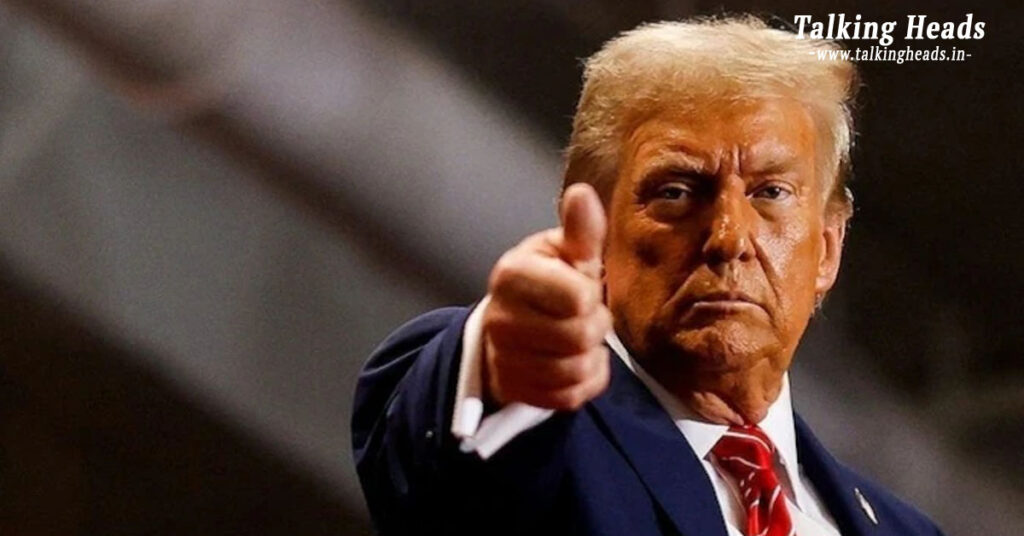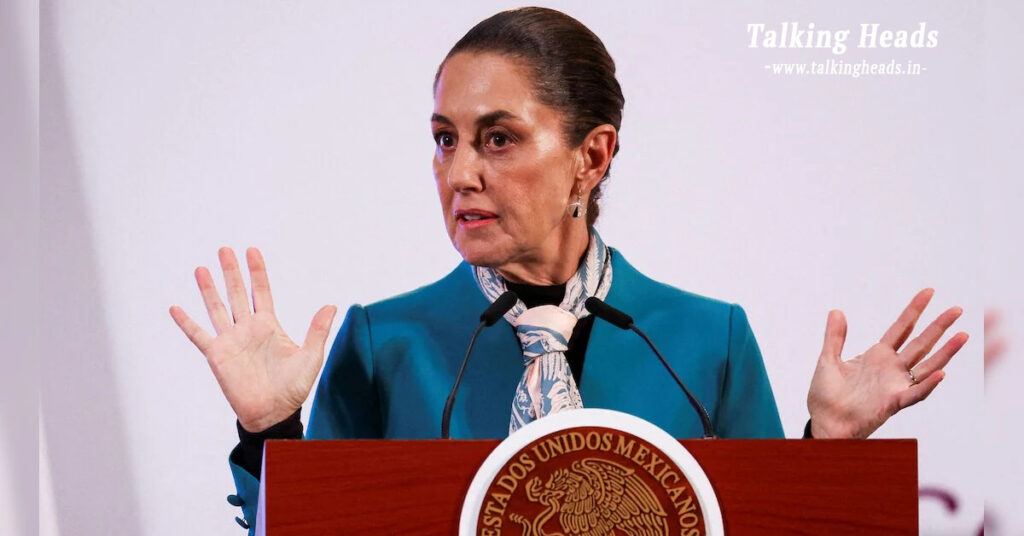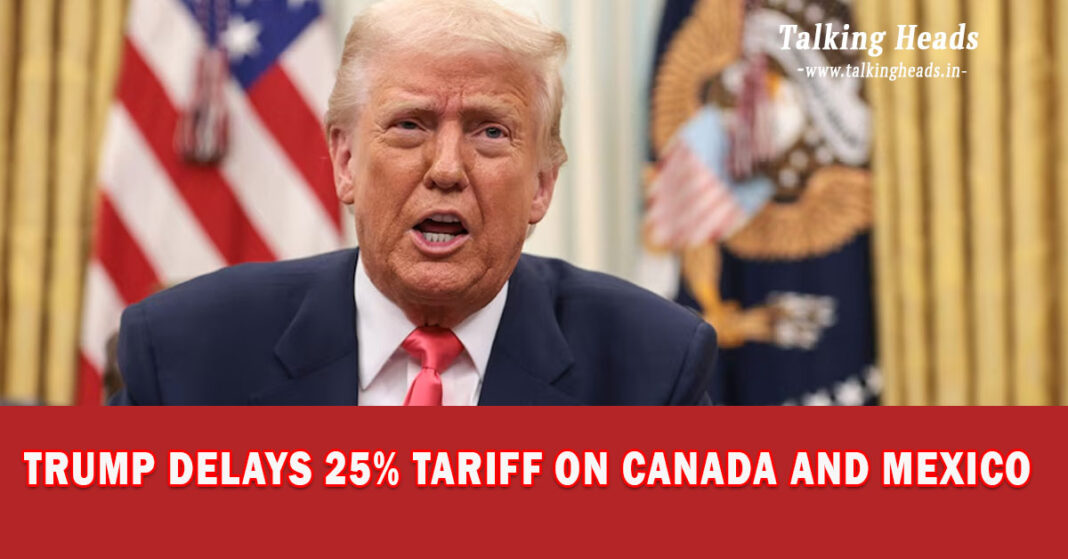Trump’s Decision to Postpone Tariff Raises Tensions with Canada and Mexico
On March 4, U.S. President Donald Trump stated that he would again postpone imposing a 25% tariff on products imported from Canada and Mexico, delaying the decision for 30 days. This second delay comes after Trump delayed in February when he initially intended to impose tariffs from February 4 but decided to delay by a day before they were to be enforced.
Table of Contents
Trump Tariff Threat Triggers Economic and Nationalistic Backlash in Canada

Trump’s threats of tariffs and his provocative statements regarding possibly making Canada the 51st U.S. state have evoked strong nationalistic feelings in Canada. In reaction to the threats, Canadians have resorted to boycotting American products. According to local media reports, Canadians are now opting to buy apples from other nations rather than U.S.-produced apples. In addition, Canadian pizzerias have substituted California tomatoes with Italian tomatoes, indicating the public’s increasing resistance to U.S. products.
Canadian Patriotic Feeling Drives Boycotts and Political Realignment
In an even more dramatic display of resistance, numerous Canadian business owners have said they will stop selling American products entirely. In addition, some Canadians who were scheduled to visit the U.S. have called off their vacations in protest. Trump’s aggressive behavior appears to have ignited a wave of patriotism throughout Canada, with people coming together behind the idea of national independence.
This increased sense of Canadian nationalism comes after the previous political upheaval in Canada. Two months ago, Canadian Prime Minister Justin Trudeau was met with huge criticism after he lost an election, which resulted in widespread rumors of his future in leadership. However, current political events indicate that his Liberal Party may be the front runner for the upcoming election, with Trudeau’s popularity surging due to his strong stance against Trump’s tariffs.
Trudeau’s Message: Canadians Will Stand Up for Their Country’s Interests

On March 3, Trudeau reacted to the tariff threats, reassuring the public that Canadians are by nature polite but will not hesitate to stand up for their country when their welfare is at stake. This message aligns with an increasingly public mood that is preoccupied with protecting Canada’s economic interests and not being held hostage by foreign pressure.
Canada and Mexico Welcome Trump’s Tariff Delay
Even as tensions rose, both Canada and Mexico welcomed Trump’s move to delay the tariffs. Canadian Finance Minister Dominic LeBlanc said his nation would also refrain from imposing tariffs on American goods for now. This diplomatic move may bring some relief to both countries as they try to understand the intricacies of global trade.

U.S. Stock Market Responds to Trade Uncertainty: A 3.6% Drop
Trump’s tariff declarations and subsequent postponements have caused immense volatility in the U.S. stock market. Following the initial declaration of the tariffs on March 4, Canada retaliated by slapping tariffs on $20.5 billion worth of American products. Mexico had earlier threatened to slap tariffs on U.S. products from Sunday if Trump did not change his mind. These measures created a sudden collapse in the American stock market, with the S&P 500 dropping 1.8% on Thursday alone, leading to a two-day loss of 3.6%, the worst performance in two years.
Auto Makers Lobby Trump to Hold Off on Tariff Rulings
American car manufacturers have persistently lobbied Trump to hold off his tariff rulings, particularly regarding auto manufacturing, which would be drastically affected by fresh tariffs. They have complained that the higher cost of parts and raw materials would translate to higher production costs, which would negatively affect manufacturers and consumers alike. Although Trump has conceded the complaints raised by the automobile industry, he maintains that the tariffs are in the end best for American workers, especially car makers and farmers. He also indicated that the tariff determination would be postponed until April 2, 2025.
Conclusion: The Future of U.S.-Canada-Mexico Trade Relations
The future of trade relations between the U.S., Canada, and Mexico is uncertain as Trump’s tariffs hang over their heads. The 30-day reprieve gives temporary relief but does not address the underlying tensions between the countries. As Canada and Mexico retaliate with countermeasures and mass public opposition, it is evident that the trade war is far from finished. The coming weeks will be significant in shaping North American trade relationships, with implications for the economic and political realities of the respective countries.
Key Takeaways
- • Trump’s move to postpone 25% tariffs against Canada and Mexico by 30 days is a new installment of an ongoing trade war.
- • The threat of tariffs has stimulated Canadian nationalism to unprecedented levels, with boycotts of American goods becoming the norm.
- • The American stock market has seen serious declines due to the uncertainty surrounding trade, and car manufacturers have called for delay.
- • The Canadian political landscape also remains in motion, with the leadership of Prime Minister Trudeau getting stronger amidst such tensions.
- While the deadline to impose tariffs comes closer, the world waits and watches whether or not these tensions between countries are going to be further escalated or if diplomatic options can be obtained.










